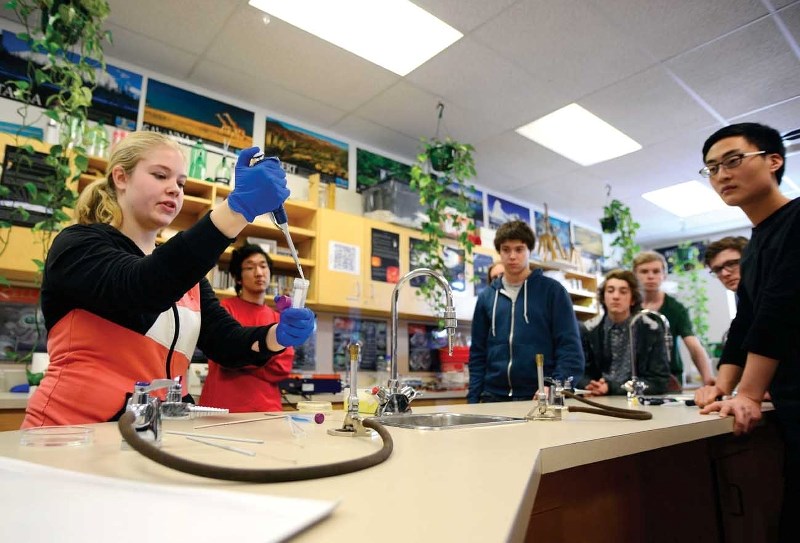A group of students from Cochrane High School (CHS) will be spending the next four months getting their hands dirty with DNA.
Thirteen students are competing as part of the school’s first International Genetically Engineered Machine (iGEM) team. Together, the group is brainstorming and building a biological system to be judged during the iGEM 2014 High School Jamboree June 28.
The CHS team — dubbed CoBRA — will be engineering E. coli bacteria to target a local problem: the mountain pine beetle
More specifically, the team is targeting the blue-stain fungus the beetles introduce into the forest, explained Jacob Rovere, a Grade 12 student and iGEM team member.
But it’s not that simple, he said. The group will be looking at combating the pine beetle problem from a plethora of standpoints — not just ecologically, but also socially, ethically and economically.
“We’re looking way beyond the beetle and the fungus,” said Rovere.
“This project is really opening my eyes to what’s available in field of bio-engineering and what kinds of problems can be solved.”
This is the first year a CHS team has applied to take part in the worldwide competition, said Stephanie Bennett, a science teacher and one of the team advisors.
A $19,000 grant from Alberta Innovates will help fund the project.
She estimated the Grade 11 and 12 students would put in about 300 extracurricular hours over the course of the competition.
“It’s going to be a lot of work,” said Bennett. “But it’s been interesting to watch the students do the research and consider the different standpoints. They’re focused on a real world problem and are searching for a real, feasible solution.”
The team has been paired up with a team of mentors, which includes two University of Calgary graduate students along with Magda Pop, who spent 12 years teaching high school.
“This program brings motivation to students,” said Pop. “They are creating something useful that is going to make an impact.”
Over the course of the next four months, the students will be working diligently to build the bacteria and their presentation. They’ll be interacting with real world professionals to gain industry perspective and feedback.
Bennett said the team plans on holding open-house style information sessions. She said feedback is the best way to gauge the success of the project before it enters judging. Dates for the public sessions have yet to be set.




